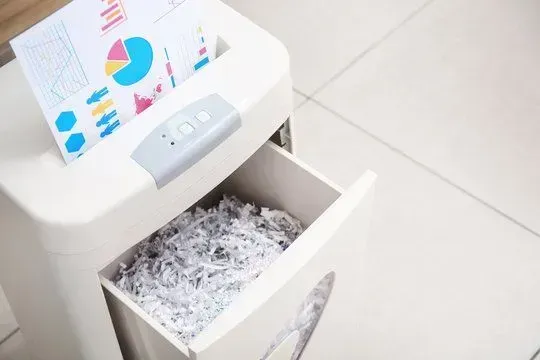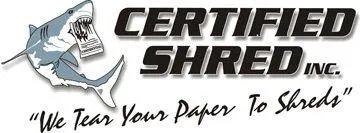Blog

Best Practices for Shredding Old Tax Records in Salt Lake City
Introduction
Tax records can pile up quickly, and figuring out which ones to keep or destroy can be confusing. Whether you’re a small business owner, an accountant, or just managing your personal finances, proper disposal of old tax records matters. In Salt Lake City, professional shredding ensures your information stays private while keeping your workspace organized and compliant. This guide walks you through the best practices for shredding old tax documents—from how long to keep them to how to dispose of them securely.
Why Proper Tax Record Shredding Matters
When tax season ends, you’re left with stacks of paper containing sensitive information—names, bank details, and Social Security numbers. If those documents end up in the wrong hands, it can lead to identity theft or financial loss. Proper shredding eliminates this risk by ensuring complete and irreversible destruction.
For businesses, secure shredding also helps maintain compliance with data protection laws such as the FACTA Disposal Rule and IRS record-keeping regulations. Whether you handle client data or your own, consistent shredding practices are essential for security and professionalism.
How Long Should You Keep Tax Records
Before getting rid of anything, it’s important to know the recommended retention periods set by the IRS. Not all documents follow the same rules—some need to be kept for a few years, while others must be preserved indefinitely.
Here’s a simple breakdown:
3 years – Keep most individual and business tax returns, supporting receipts, and expense records for this duration.
7 years – Retain documents involving bad debt deductions or loss claims for worthless securities.
Indefinitely – Hold onto records for unfiled or fraudulent returns, as there’s no limitation period on these.
The key takeaway: don’t shred until the safe retention period has passed. After that, schedule a shredding service to free up storage and eliminate risks.
How to Shred Old Tax Records Safely
To ensure secure and compliant disposal, follow a structured process rather than simply tossing papers into a home shredder. Each step helps protect your information while streamlining the process.
1. Sort and Identify Sensitive Documents
Review all tax-related files and separate anything containing confidential information—bank records, receipts, W-2s, and statements.
2. Select a Certified Shredding Provider
In Salt Lake City, companies like Certified Shred are NAID AAA-certified, meaning they follow strict industry standards for security and confidentiality.
3. Choose Between On-Site or Off-Site Shredding
On-Site Shredding: A mobile truck comes to your location and destroys documents immediately in your presence—ideal for smaller loads or privacy-sensitive tasks.
Off-Site Shredding: Bulk documents are transported securely to a shredding facility, perfect for large-scale purges or scheduled services.
4. Request a Certificate of Destruction
After every shredding job, ask for an official certificate to verify that all records were properly destroyed.
5. Set a Regular Shredding Schedule
Offices and accounting firms should consider recurring services to keep their data protected year-round and prevent clutter from accumulating.
Local Perspective: Shredding in Salt Lake City
Salt Lake City’s business community thrives on trust and compliance, making secure document management a top priority. From small offices downtown to large firms in nearby areas like Murray or Sandy, maintaining confidentiality is key to credibility.
Using a local shredding provider ensures quicker service, personalized support, and adherence to Utah’s data privacy regulations. Certified Shred’s strong presence in the region means local businesses have reliable access to secure and eco-friendly document destruction whenever needed.
Helpful FAQs About Shredding Old Tax Records
1. Can I shred tax documents from different years together?
Yes. Once all files have passed their respective retention periods, you can shred them together. Just make sure to double-check that each year’s records are safe to destroy.
2. What should I do with old electronic tax files?
Digital tax records should be permanently deleted using certified data-wiping tools or destroyed through professional hard drive shredding services.
3. How can I tell if a shredding company is trustworthy?
Look for certifications like NAID AAA and verify they provide a Certificate of Destruction after each job. This ensures the company follows strict compliance and privacy standards.
4. Are there tax benefits to professional shredding?
While shredding costs aren’t directly deductible, maintaining proper records and preventing identity theft can help you stay compliant and avoid penalties that cost more in the long run.
5. Is there an ideal time of year to shred old tax records?
Right after tax season—typically between April and June—is a great time to review, organize, and shred outdated documents for a fresh start before the next filing year.
Conclusion
Old tax records may seem harmless, but they hold valuable personal and financial information that can put you at risk if not destroyed properly. Following the right retention timelines and using professional shredding services keeps your data safe and your office clutter-free.
For individuals and businesses in Salt Lake City, relying on a secure shredding provider ensures peace of mind, compliance, and environmental responsibility. Protect your information the right way—through professional document destruction done by experts who understand your local needs.

© 2025 Certified Shred
Contact Information
Phone: 801-972-4748
Email: [email protected]
Address: 537 Pickett Circle Suite 600 Salt Lake City UT 84115
Business Hours:
Mon - Thu: 8:00 am-3:00 pm
Friday: 8:00 am - 1:00 pm
Sat - Sun: Closed
Service Areas
© All Rights Reserved • Grease Guys | Terms of Use | Privacy Policy